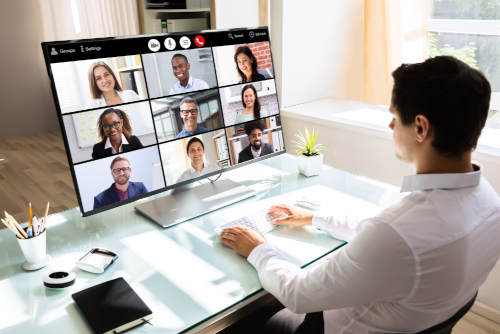
Phone Etiquette
You hang up the phone and sigh. The conversation didn’t go the way you planned. Maybe the caller misunderstood you, or the tone didn’t feel quite right. Perhaps you struggled to control the conversation or felt unprepared for a difficult request. Phone conversations should be clear and productive, but they’re often not.
Now multiply that experience across a workplace. Poor phone communication leads to wasted time, frustrated clients, and missed opportunities. A Microsoft survey found that 58% of customers stop doing business with a company after a bad service experience, and phone interactions are often where things go wrong. When conversations lack professionalism or confidence, relationships suffer.
This interactive workshop will help you take control of phone conversations with confidence and professionalism. You’ll learn strategies to set the right tone, guide conversations, and handle difficult calls with ease. Through hands-on activities, you’ll practice using active listening techniques, responding clearly, and remaining professional, even under pressure.
By the end of this workshop, you’ll know how to handle calls effectively, communicate with clarity, and create a positive impression on every caller. Whether you’re speaking with customers, colleagues, or internal partners, you’ll have practical tools to make every conversation go more smoothly.

- Identify strengths and areas for improvement in your phone communication.
- Apply best practices to keep phone conversations clear and respectful.
- Deliver excellent customer service by listening actively and responding effectively.
- Speak clearly using plain language and a confident tone.
- Stay in control of phone calls to keep conversations focused and productive.
- Handle difficult calls professionally and calmly, even in high-pressure situations.
- Manage everyday tasks efficiently, like placing callers on hold or transferring calls.

This workshop is a great fit for anyone who manages phone communication as part of their role and wants to improve the professionalism, clarity, and effectiveness of those interactions. Whether you’re handling internal calls, supporting clients, or managing high-pressure conversations, this session offers practical strategies to help every call go more smoothly.
You should attend if you
- Feel unsure of how to guide or manage challenging phone conversations
- Want to speak more clearly and professionally when handling customer or internal calls
- Struggle with setting the right tone or staying composed under pressure
- Need to improve how you listen and respond to ensure callers feel heard and understood
- Are responsible for front-line communication in customer service, administrative, reception, or coordination roles
- Would like to reduce frustration and improve outcomes during everyday phone interactions
After this session, you’ll feel more confident managing phone conversations with professionalism and ease. You’ll have practical strategies to help you stay calm, communicate clearly, and make every call a better experience for you and the caller.

This workshop includes self-assessment, guided reflection, and practical exercises. You’ll explore your current phone habits, practise new ways of expressing ideas, and work through situations that build goodwill and clarity on calls. Through individual and group activities, you’ll try out strategies for checking understanding, using everyday language, and managing calls with confidence. Group discussion and planning exercises help you apply these techniques directly to your work.
You’ll also receive a resource booklet with scripts, checklists, and tools to support your phone communication after the session.
Workshop activities include
- Self-assessing current phone habits and communication practices
- Rephrasing uncertain language to convey clarity and confidence
- Reframing negative or unclear “no” statements to maintain goodwill with clients
- Responding to phone etiquette scenarios using best-practice approaches
- Discussing challenges and best practices in group conversation
- Creating a personal action plan





